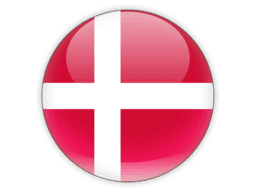
Regions of Denmark
Explore 5 regions
Cities of Denmark
Discover 50 cities across 5 regions
Capital Region(20)
Central Jutland(10)
North Denmark(4)
Denmark is a Scandinavian country located in Northern Europe, with a population of approximately 5.8 million people. The country is known for its stunning natural landscapes, vibrant cities, and strong economy.
The capital and largest city of Denmark is Copenhagen, which is home to many historic landmarks, museums, and cultural attractions. The country has a strong focus on sustainability and is a leader in renewable energy, urban planning, and sustainable transportation.
Denmark has a mixed-market economy with a strong focus on exports, particularly in the areas of shipping, pharmaceuticals, and renewable energy technologies. The country is also known for its high standard of living, universal healthcare system, and comprehensive social welfare programs.
Denmark has a long and fascinating history, with evidence of human settlement dating back to the Stone Age. Throughout its history, Denmark has been ruled by various powers, including the Vikings, and was a major player in the Scandinavian political and economic union, which lasted from the 14th to the mid-16th centuries.
Today, Denmark is a member of the European Union and the Schengen Area, with a highly developed infrastructure and strong economy. The country has a well-developed education system, with a focus on high-quality primary, secondary, and tertiary education.
Overall, Denmark is a beautiful and fascinating country with a rich history, vibrant culture, and strong economy. Its focus on sustainability, high standard of living, and strong social welfare programs make it a sought-after destination for both tourists and expats.
Telephone Code
45
Local Emergency Phone
112
Vaccinations
See WHO recommendations
Climate
Temperate; humid and overcast; mild, windy winters and cool summers
Currency (Code)
Danish kroner (DKK)
Electricity/Voltage/Plug Type(s)
230 V / 50 Hz / plug types(s): C, E, F, K
Major Languages
Danish, Faroese, Greenlandic, German; note: English is the predominant second language
Major Religions
Evangelical Lutheran 74.7%, Muslim 5.5%
Potable Water
Yes
International Driving Permit
Suggested
Road Driving Side
Right
Tourist Destinations
Copenhagen (includes Nyhavn; National Museum of Denmark (Nationalmuseet); National Gallery of Denmark (Statens Museum for Kunst); Christiansborg Palace; Amalienborg Palace; Tivoli Gardens); Viking Ship Museum (Roskilde); Oresund Bridge
Major Sports
Soccer, handball
Cultural Practices
While eating in Denmark, it is customary to keep one's hands visible even when resting. So, wrists are often laid on the table.
Tipping Guidelines
Hotel and restaurant personnel are typically not tipped because service charges are included in the bill by law, but a tip of 10% for good service is appreciated. Taxi drivers are not tipped, but you may always round up the fare.
Souvenirs
Porcelain/ceramics, handmade woolen items, cheese, chocolate, Lego toys
Traditional Cuisine
Frikadeller — flat meat patties made of minced beef, chopped onions, milk, and eggs and served with potatoes, creamed cabbage, gravy, and/or pickled beetroot
Geography
Area
total: 43,094 sq km
land: 42,434 sq km
water: 660 sq km
Climate
temperate; humid and overcast; mild, windy winters and cool summers
Natural resources
petroleum, natural gas, fish, arable land, salt, limestone, chalk, stone, gravel and sand
People and Society
Population
5,946,984 (2023 est.)
Ethnic groups
Danish (includes Greenlandic (who are predominantly Inuit) and Faroese) 85.6%, Turkish 1.1%, other 13.3% (largest groups are Polish, Syrian, Romanian, German, and Iraqi) (2022 est.)
Languages
Danish, Faroese, Greenlandic (an Inuit dialect), German (small minority); note - English is the predominant second language
Religions
Evangelical Lutheran (official) 74.7%, Muslim 5.5%, other/none/unspecified (denominations of less than 1% each in descending order of size include Roman Catholic, Jehovah's Witness, Serbian Orthodox Christian, Jewish, Baptist, Buddhist, Church of Jesus Christ, Pentecostal, and nondenominational Christian) 19.8% (2019 est.)
Population growth rate
0.44% (2023 est.)
Government
Government type
parliamentary constitutional monarchy
Capital
name: Copenhagen
Real GDP (purchasing power parity)
$339.472 billion (2021 est.)
Real GDP per capita
$58,000 (2021 est.)
Agricultural products
milk, wheat, barley, potatoes, sugar beets, pork, rye, rapeseed, oats, poultry
Industries
wind turbines, pharmaceuticals, medical equipment, shipbuilding and refurbishment, iron, steel, nonferrous metals, chemicals, food processing, machinery and transportation equipment, textiles and clothing, electronics, construction, furniture and other wood products
Exports
$234.262 billion (2021 est.)
Exports - partners
Germany 14%, United States 11%, Sweden 10%, United Kingdom 7%, Norway 6%, Netherlands 5%, China 5% (2019)
Exports - commodities
packaged medicines, electric generators, pork, refined petroleum, medical cultures/vaccines (2019)
Imports
$208.121 billion (2021 est.)
Imports - partners
Germany 21%, Sweden 11%, Netherlands 8%, China 7% (2019)
Imports - commodities
cars, refined petroleum, packaged medicines, crude petroleum, broadcasting equipment (2019)
International Airports in Denmark
Discover 10 major airports serving Denmark
Mark Denmark as Visited
Add Denmark to your personal travel map and track your journey around the world. Share your adventures and see your progress grow!